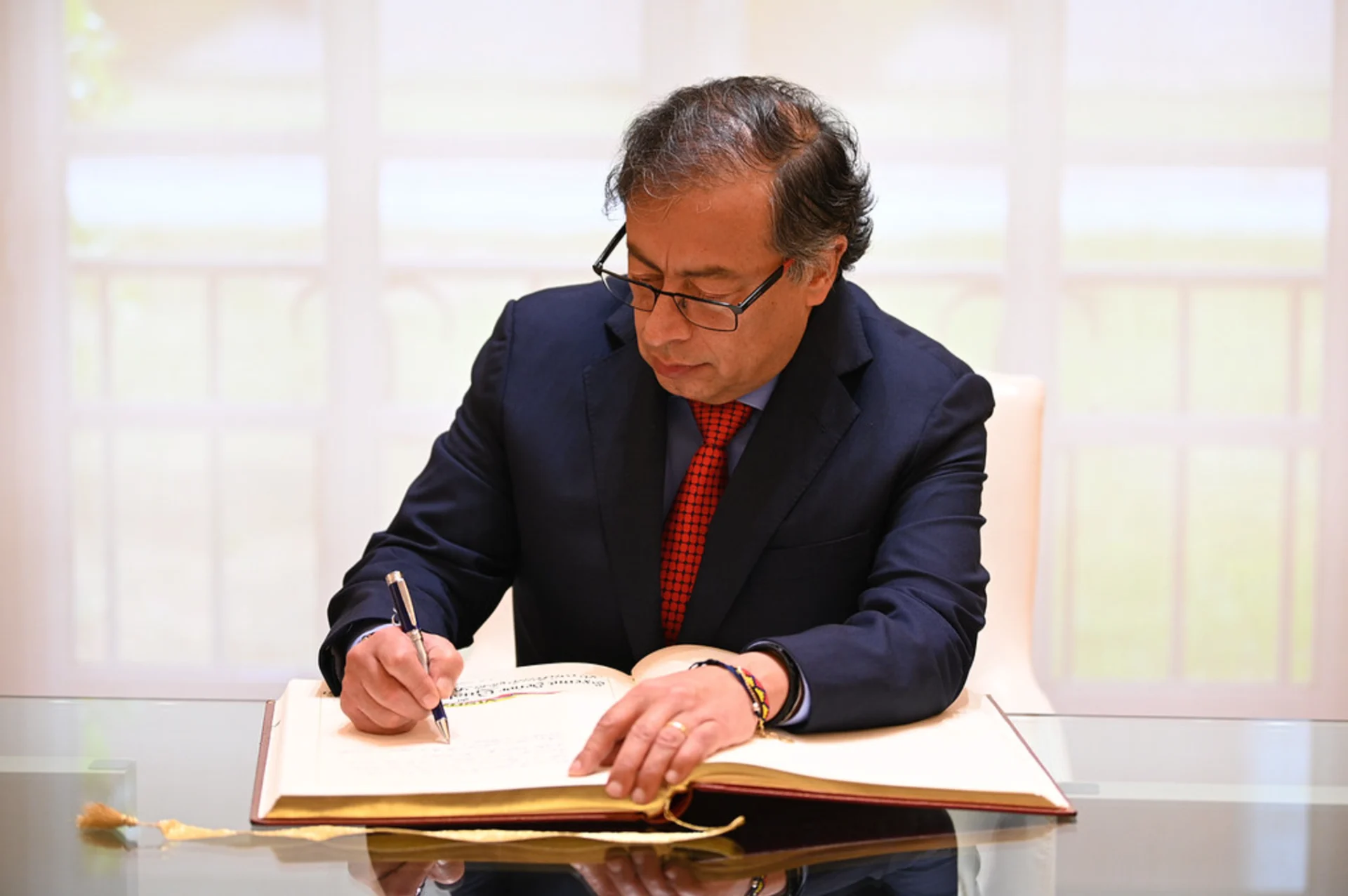Colombian President Gustavo Petro reaches the midpoint of his term. These two years have been marked by high expectations, hopes for change and ambitious proposals for social transformation driven by the government. However, structural problems persist, and some progress has been overshadowed by corruption scandals and disappointments with the slow pace of certain reforms.
It is worth remembering that since Petro’s government began, as the country’s first leftist administration, it presented an ambitious agenda within the framework of a historic opportunity that the government itself has called “The Government of Change.” However, several obstacles have hindered progress on many of the proposals for which he was elected in June 2022.
Firstly, anti-Petrism has managed to establish itself as a force affecting the president’s management. This rejection of Petro as a political leader, more than towards the left or the ruling party itself, has been one of the main obstacles to advancing several reforms. These reforms have received little support both in the legislative sphere and in public opinion.
This antipathy towards Petro stems from his tenure as mayor and intensified during his presidential candidacies. It is not surprising that the phrase “Petro’s fault” has become common, reflecting how the current president has increasingly generated hatred and, consequently, emotions such as anger, contempt, frustration, and fear.
Petro’s militancy in the M-19 during his youth contributed to him being viewed as a symbol of communism and embodying “the specter of Venezuela” in the country. This perception has led to frequent attacks on social media using the pejorative term “the guerrilla president.”
Several Colombian media outlets, which had not played an active role in denouncing and critiquing previous governments, have been crucial in increasing negative public opinion towards Petro. They’ve questioned the vast majority of his decisions and actions and have given extensive coverage to scandals involving the current administration. This tense relationship with the media has been instrumental in increasing the president’s disapproval ratings, which, according to recent surveys, is approaching 60%.
For his part, the president has attempted to defend his administration and the relevance of his reforms through official channels and social media, although often with an excessive and ineffectual use of X (formerly known as Twitter).
Secondly, several corruption scandals have directly and indirectly compromised the advancement of many changes proposed by the current government. This includes the vote-buying scandal involving the president’s son, Nicolás Petro, and particularly the National Unit for Disaster Risk Management (UNGRD), an entity allegedly used by the government to secure congressional approval of reforms through lucrative contracts.
The fact that the “government of change” continued with corruption and clientelism practices, like previous administrations, has generated outrage among its supporters. Meanwhile, the opposition and government detractors portray these scandals as unprecedented in the country’s history. One should remember though, that there were scandals like Oderbrecht during the administration of president Santos, or the so-called “ñeñepolitics,” which involved vote-buying for Iván Duque’s election using drug money, or corruption in rural connectivity contracts also during the Duque administration, to name a few examples.
Thirdly, ungovernability has been a determining factor in the slow progress of the government’s agenda. The fragile coalition with which the government began in Congress collapsed within a few months, especially during debates on healthcare reform. Despite advancing some reforms, such as tax and pension, other key reforms, like those concerning health and education, have faced strong opposition from Congress and the public.
In this regard, it is evident that, unlike previous governments, this administration has had to demonstrate significantly superior negotiation skills. It is clear that this is not merely a technical debate about the relevance of reforms but also reflects the persistent power of traditional and conservative parties in Congress. Similarly, in public debate, personal attacks and generalized criticism of the government have predominated over a serious discussion of the relevance and content of the reforms.
Finally, structural factors have impeded the government’s agenda progress. For example, the government proposed ambitious goals related to consolidating peace in the country, arguably Colombia’s greatest challenge in recent decades. This led to the promotion of Total Peace, which opened the door to negotiations with virtually all armed groups, such as the Gulf Clan, the ELN, and FARC dissidents.
However, unlike previous peace processes, the fragmentation of armed groups and their greater territorial control, among other things, by occupying the voids left by the FARC guerrillas, has made negotiations more difficult. As a result, many of these groups have not continued in the negotiation tables, and the government at this point presents only partial and very concrete advances.
In conclusion, Petro’s government has faced numerous obstacles that will likely continue to condition the progress of reforms for the rest of his term. Being the first leftist government in the country has generated high expectations among voters, but it has also elicited opposition that will continue to use various means, such as influencing public opinion, to hinder any action that implies substantial change.
The mistakes made by Petro and his government, such as misguided appointments and corruption scandals, should not overshadow the need to advance several social reforms. Beyond that, it is essential to remember the relevance of continuing to expand democracy in Colombia, historically exclusionary and violent against alternative forces, as demonstrated by the assassination of presidential candidates and the extermination of the Patriotic Union.
Translated by Ricardo Aceves from the original in Spanish.













